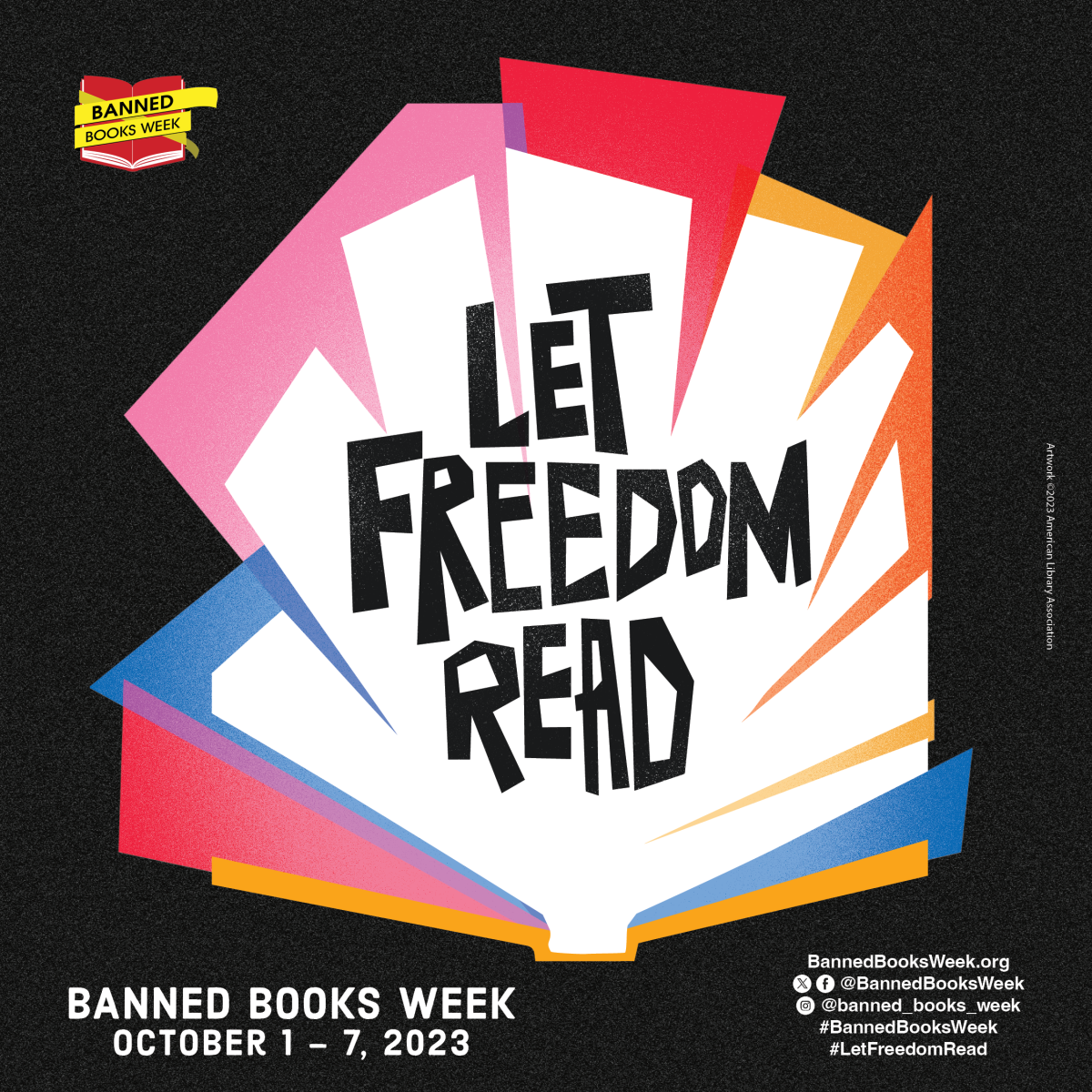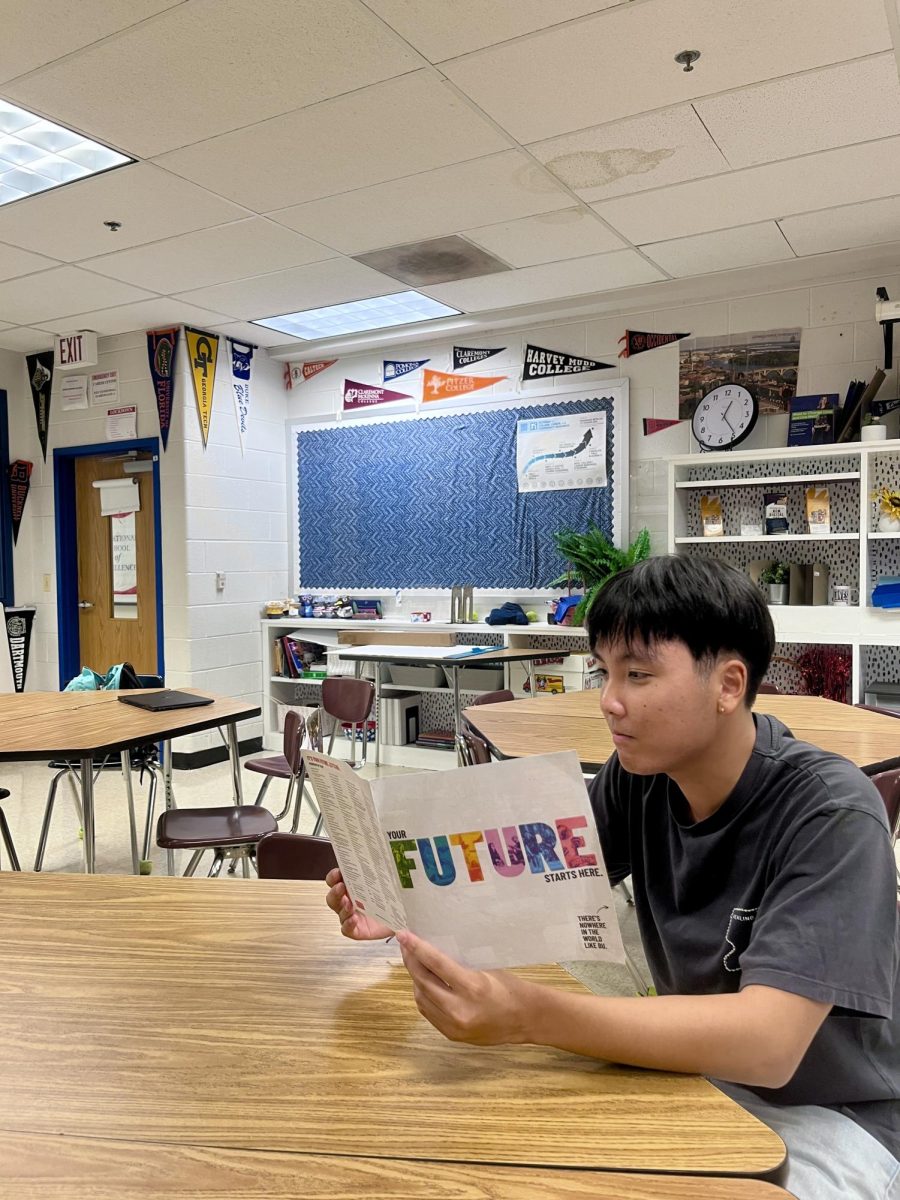Across the country, parents have been questioning, challenging, and in some cases altogether banning books being provided in schools. Some of these books are taught in school curriculums while others are available in school libraries. The books To Kill a Mockingbird, Of Mice and Men, The Catcher in the Rye, The Hate U Give, and Gender Queer: A Memoir, have been recently challenged.
MCPS hasn’t banned any books and has fought hard against it. “There was a lawsuit over the summer that was settled, a group of parents was suing MCPS to have elementary-aged children able to opt out of books they felt were inappropriate in the same way in health classes parents can opt out of the family life unit. The parents lost,” English department head and AP Lit teacher Evva Starr said.
The process the library goes through when a book is banned is different than in a school curriculum. “The library is free will. People can read what they want. When a book is banned or challenged it normally stays in libraries and people are allowed to check it out if they want. And if they don’t then that’s that,” school librarian Tammie Burk said.
If in the school curriculum, books that are banned would have to be removed. “Banning a book from the curriculum would be a county directive that would say this book is not allowed to be taught in English classes,” Starr said.
Libraries take advantage of these banned books and a country-wide banned book week was created. It is typically held the last week of September or the first week of October. According to the Banned Books Week website. “The annual event highlights the value of free and open access to information and brings together the entire book community — librarians, educators, authors, publishers, booksellers, and readers of all types — in shared support of the freedom to seek and express ideas.”
Reading can be a comfort for people and the banning of books can be a sensitive topic. “Reading is a way I can distract myself from reality and calm down. There are so many books that are perfectly fine to be read that are being banned,” freshman Sarah Podberesky said.
Banning and challenging books can have the opposite effect than intended. Often when a book is challenged it makes people want to read it more. “Two students came into the library the other day and asked if we had Lord of the Flies, I told them yes and asked if they wanted to check it out. They said they just wanted to look through it. They have obviously heard about it somewhere and wanted to find why it was challenged,” Burk said.
Some teachers think this side effect could be beneficial for students but others disagree. “I think that literature should be available to everyone and what we do as English teachers is teach students how to read this piece of literature and apply it to their lives. I don’t know of a better thing to teach human beings to look at another perspective and understand someone else’s story so I think that banning books is awful,” Starr said.
Books that are being challenged may not be engaging to all students but Starr feels that doesn’t warrant them being banned. “I don’t know if [Catcher in the Rye] resonates with our students the way it did when it came out in the 1950s and was really revolutionary. I think we have other books on the same subject that our students tend to like better but I have huge respect for it,” Starr said.
Both students and teachers have had negative reactions to book bannings. “I understand some books might be uncomfortable but learning won’t always be sunshine and rainbows. A large amount of books represent things shown on TV but they aren’t being called out,” Podberesky said. “Either way kids will learn these things.”







![Editors-in-Chief Ahmed Ibrahim, Helen Manolis, Cameron Cowen, Alex Grainger, Emory Scofield, Hayley Gottesman, Rebekah Buchman and Marley Hoffman create the first print magazine of the year during the October press days. “Only a quarter of the schools in MCPS have programs that are like ours, a thriving, robust program. That makes me really sad. This is not just good for [the student journalists] to be doing this, it’s good for the entire community. What [student journalists] provide to the community is a faith in journalism and that continues for their lifetimes," Starr said.](https://woottoncommonsense.com/wp-content/uploads/2025/10/wmpoFTZkCPiVA3YXA4tnGoSsZ4KmnKYBIfr18p3l-900x1200.jpg)
